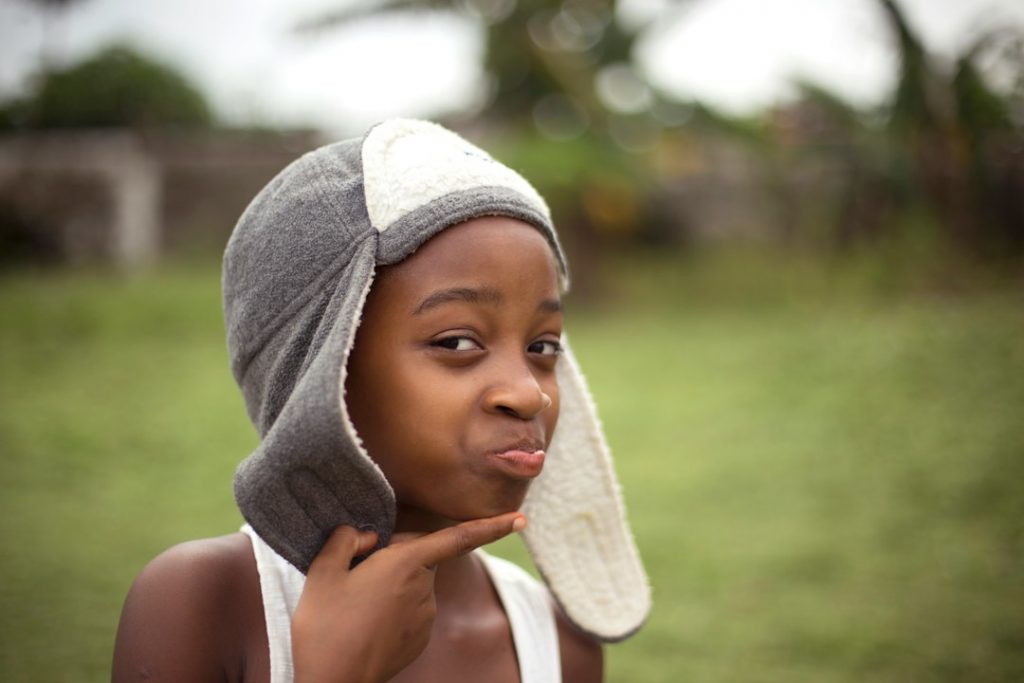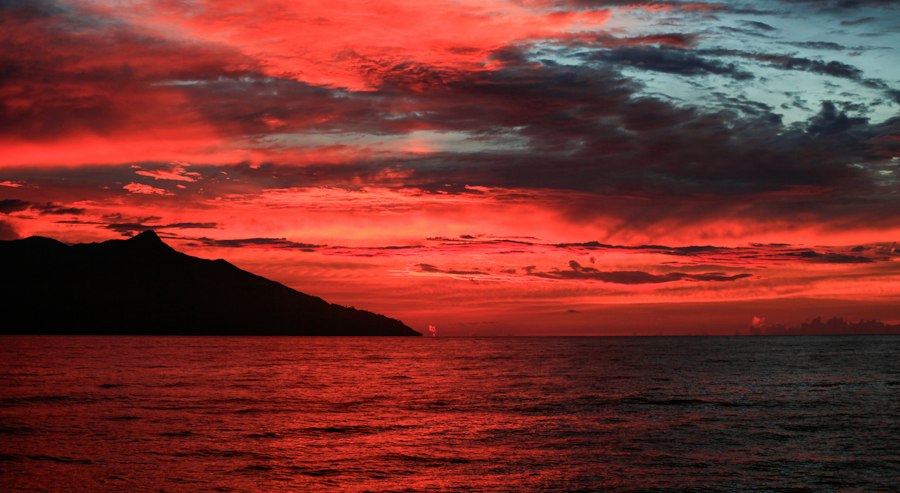
Equatorial Guinea, a small country located on the west coast of Central Africa, is often referred to as Africa’s best kept secret. With its stunning beaches, natural wonders, rich cultural heritage, and fascinating history, Equatorial Guinea offers a unique and unforgettable travel experience. Despite its relatively unknown status, the country has much to offer to adventurous travelers seeking to explore off-the-beaten-path destinations.
Equatorial Guinea is made up of two main regions: the mainland region known as Rio Muni and the island region consisting of Bioko Island and the smaller islands of Annobón and Corisco. The country is known for its diverse landscapes, ranging from pristine beaches and lush rainforests to volcanic mountains and savannahs. This diversity makes it a paradise for nature lovers and adventure seekers.
Summary
- Equatorial Guinea is Africa’s best kept secret, with stunning beaches, rich cultural heritage, fascinating history, vibrant capital city, delicious cuisine, friendly locals, untamed jungles, and luxury resorts and spas.
- Equatorial Guinea’s stunning beaches and natural wonders are a must-see, with crystal-clear waters, white sand beaches, and diverse marine life.
- The rich cultural heritage of Equatorial Guinea is evident in its music, dance, art, and traditional customs, which are celebrated throughout the country.
- Delving into the fascinating history of Equatorial Guinea reveals a complex past, from colonialism to independence, and the challenges faced by the country today.
- Malabo, the vibrant capital city of Equatorial Guinea, is a bustling hub of activity, with colourful markets, lively nightlife, and stunning architecture.
Discovering Equatorial Guinea’s Stunning Beaches and Natural Wonders
Equatorial Guinea boasts some of the most beautiful beaches in Africa. The country’s coastline stretches for over 300 miles, offering visitors a wide range of options for sunbathing, swimming, and water sports. Some of the most popular beaches include Arena Blanca, Ureka Beach, and Sipopo Beach. These beaches are known for their crystal-clear waters, soft white sand, and picturesque surroundings.
In addition to its stunning beaches, Equatorial Guinea is home to several natural wonders that are worth exploring. Monte Alen National Park, located in Rio Muni, is a biodiverse haven with dense rainforests, cascading waterfalls, and an abundance of wildlife. Pico Basilé, the highest peak in Equatorial Guinea, offers breathtaking views of the surrounding landscapes and is a popular destination for hiking enthusiasts.
Uncovering the Rich Cultural Heritage of Equatorial Guinea
Equatorial Guinea is a melting pot of different cultures and ethnic groups. The country is home to several indigenous tribes, including the Fang, Bubi, and Ndowe. Each ethnic group has its own unique traditions, customs, and languages, contributing to the rich cultural heritage of the country.
The Fang people, the largest ethnic group in Equatorial Guinea, are known for their vibrant music and dance traditions. The Bubi people, who primarily inhabit Bioko Island, have a rich oral tradition and are skilled craftsmen. The Ndowe people, who live mainly in the coastal areas, are known for their fishing skills and traditional medicine practices.
Visitors to Equatorial Guinea have the opportunity to immerse themselves in the local culture by attending traditional festivals, visiting local markets, and interacting with the friendly locals. The country’s cultural heritage is a testament to its diversity and offers a unique insight into the history and traditions of its people.
Delving into the Fascinating History of Equatorial Guinea
| Period | Event | Significance |
|---|---|---|
| Pre-colonial era | Indigenous tribes | Various ethnic groups inhabited the region, including the Bubi, Fang, and Ndowe. |
| 1471 | Portuguese arrival | The Portuguese navigator Fernão do Pó discovered the island of Bioko and named it Formosa. |
| 1778 | Spanish colonization | The Spanish established a colony on the island of Fernando Póo (now Bioko) and later expanded to the mainland. |
| 1968 | Independence | Equatorial Guinea gained independence from Spain and became a republic. |
| 1979 | Obiang coup | Teodoro Obiang Nguema Mbasogo seized power in a military coup and has been the country’s president ever since. |
| 1995 | Discovery of oil | Equatorial Guinea became one of Africa’s largest oil producers, transforming the country’s economy. |
| 2011 | UNESCO World Heritage Site | The colonial city of Malabo was designated a UNESCO World Heritage Site for its unique architecture and cultural significance. |
Equatorial Guinea has a complex and fascinating history that dates back to pre-colonial times. The region was inhabited by various indigenous tribes before the arrival of European explorers in the 15th century. The Portuguese were the first Europeans to establish a presence in the area, followed by the Spanish who colonized Equatorial Guinea in the late 18th century.
Colonialism had a profound impact on Equatorial Guinea, with the Spanish exploiting the country’s resources and imposing their culture and language on the local population. The country gained independence from Spain in 1968 and has since faced numerous challenges in its quest for political stability and economic development.
Today, Equatorial Guinea is one of Africa’s wealthiest countries due to its vast oil reserves. However, despite its wealth, the country still faces issues such as poverty, inequality, and political repression. Understanding the history of Equatorial Guinea is essential for visitors to gain a deeper appreciation of its culture and people.
Exploring Malabo: The Vibrant Capital City of Equatorial Guinea
Malabo, the capital city of Equatorial Guinea, is a vibrant and bustling metropolis that offers a unique blend of modernity and tradition. The city is known for its colonial architecture, with many buildings dating back to the Spanish colonial era. The Presidential Palace, the Cathedral of Santa Isabel, and the Malabo National Park are some of the city’s most iconic landmarks.
In addition to its architectural wonders, Malabo is also home to a thriving cultural and artistic scene. The city hosts numerous art exhibitions, music festivals, and theatrical performances throughout the year. Visitors can explore local art galleries, attend live music concerts, and experience traditional dance performances.
Sampling the Delicious Cuisine of Equatorial Guinea

Equatorial Guinea’s cuisine is a reflection of its diverse cultural heritage. The country’s cuisine is influenced by Spanish, Portuguese, and African culinary traditions, resulting in a unique fusion of flavors and ingredients. Seafood plays a prominent role in Equatoguinean cuisine, with dishes such as grilled fish, prawns in garlic sauce, and seafood paella being popular choices.
Other traditional dishes include Sopa de Pescado (fish soup), Fufu (a dough-like dish made from cassava or plantains), and Ndole (a stew made from bitter leaves and peanuts). Equatorial Guinea is also known for its tropical fruits such as mangoes, papayas, and bananas, which are often used in desserts and refreshing beverages.
Meeting the Friendly Locals: A Warm Welcome to Equatorial Guinea
One of the highlights of visiting Equatorial Guinea is the warm hospitality of its people. Equatoguineans are known for their friendliness, generosity, and welcoming nature. Visitors can expect to be greeted with smiles and open arms wherever they go.
Cultural norms and customs play an important role in Equatoguinean society. It is customary to greet people with a handshake and to use formal titles when addressing elders or people in positions of authority. Respect for elders and communal values are highly valued in Equatoguinean culture.
Wildlife Watching in the Untamed Jungles of Equatorial Guinea
Equatorial Guinea is home to a diverse range of wildlife, making it a paradise for nature lovers and wildlife enthusiasts. The country’s rainforests are teeming with exotic bird species, including the African grey parrot, the black-casqued hornbill, and the grey-necked rockfowl.
The jungles of Equatorial Guinea are also home to a variety of primates, including chimpanzees, gorillas, and mandrills. Monte Alen National Park is a popular destination for wildlife watching, offering visitors the opportunity to spot these incredible creatures in their natural habitat.
Relaxing in Equatorial Guinea’s Luxury Resorts and Spas
Equatorial Guinea offers a range of luxury resorts and spas where visitors can relax and unwind. These resorts are known for their world-class amenities, stunning views, and impeccable service. Whether you prefer a beachfront retreat or a mountain hideaway, there are plenty of options to choose from.
Many resorts offer a range of activities such as snorkeling, kayaking, and hiking, allowing visitors to make the most of their stay. Spa facilities are also available, offering a range of treatments and therapies to rejuvenate the body and mind.
Planning Your Dream Trip to Equatorial Guinea: Tips and Recommendations
When planning a trip to Equatorial Guinea, it is important to consider practical tips and recommendations to ensure a smooth and enjoyable experience. Here are some key points to keep in mind:
1. Visa Requirements: Visitors to Equatorial Guinea are required to obtain a visa before entering the country. It is advisable to check the visa requirements well in advance and to allow sufficient time for the visa application process.
2. Best Time to Visit: The best time to visit Equatorial Guinea is during the dry season, which runs from December to February. During this time, the weather is pleasant and rainfall is minimal, making it ideal for outdoor activities and wildlife watching.
3. Health and Safety: It is recommended to consult a healthcare professional before traveling to Equatorial Guinea to ensure that all necessary vaccinations are up to date. It is also important to take precautions against mosquito-borne diseases such as malaria and dengue fever.
4. Transportation: Getting around Equatorial Guinea can be challenging, especially in remote areas. It is advisable to hire a local guide or driver who is familiar with the terrain and can navigate the country’s road network.
In conclusion, Equatorial Guinea is a hidden gem in Africa that offers a wealth of natural beauty, cultural heritage, and historical significance. From its stunning beaches and natural wonders to its rich cultural traditions and warm hospitality, Equatorial Guinea has something for every type of traveler. By planning your dream trip to Equatorial Guinea, you can uncover Africa’s best kept secret and create memories that will last a lifetime.
FAQs
What is Equatorial Guinea?
Equatorial Guinea is a small country located in Central Africa. It is bordered by Cameroon to the north, Gabon to the south and east, and the Gulf of Guinea to the west.
What is the capital of Equatorial Guinea?
The capital of Equatorial Guinea is Malabo. It is located on the island of Bioko, which is part of the country.
What is the population of Equatorial Guinea?
According to the World Bank, the population of Equatorial Guinea was estimated to be around 1.4 million in 2019.
What is the official language of Equatorial Guinea?
The official languages of Equatorial Guinea are Spanish, French, and Portuguese. However, Spanish is the most widely spoken language in the country.
What is the currency of Equatorial Guinea?
The currency of Equatorial Guinea is the Central African CFA franc. It is also used by several other countries in Central Africa.
What is the economy of Equatorial Guinea based on?
The economy of Equatorial Guinea is largely based on oil and gas production. The country is one of the largest oil producers in Africa.
What is the climate like in Equatorial Guinea?
Equatorial Guinea has a tropical climate with high temperatures and humidity throughout the year. The country experiences two rainy seasons, from February to May and from September to December.
What is the political system of Equatorial Guinea?
Equatorial Guinea is a presidential republic with a one-party system. The current president is Teodoro Obiang Nguema Mbasogo, who has been in power since 1979.


